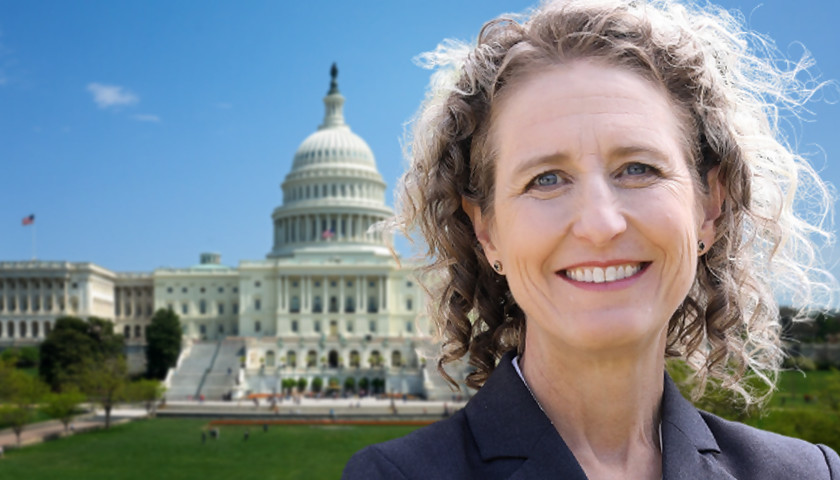State Senator Jen Kiggans (R-Virginia Beach) has signed a pledge to support a term limits Constitutional amendment if she is elected to Congress. The proposed amendment would limit U.S. representatives to three terms, and U.S. Senators to two terms. Of Virginia’s current federal legislators, only Congressman Bob Good (R-Virginia-05) has signed the pledge. Good is also a cosponsor of HJR 12 in the current Congressional session.
“Term limits on elected officials will help guarantee the will of the people, not special interests or career politicians, are being heard,” Kiggans said in a press release.
The pledge only commits signers to cosponsor and vote for the amendment; it does not commit legislators to limit their own terms unless the amendment becomes law. The pledge is supported by advocacy organization U.S. Term Limits, which argues that not having term limits allows a “ruling class” of legislators to ignore voters and block state power.
But enacting a Constitutional amendment is a difficult task. There are two options. Two-thirds of states can ask Congress to call a convention to consider amendments or an amendment can be passed by two-thirds votes in both chambers of Congress, and then ratified by three-fourths of the states.
Politicians have debated term limits for federal offices since the drafting of the U.S. Constitution, according to The Politics and Law of Term Limits. Although an amendment to term-limit the presidency was successfully passed and ratified in the 20th century after President Franklin Delano Roosevelt’s unprecedented four-term presidency, efforts to enact similar limits on Congress have so far failed.
In 1999, The Washington Post reported on a wave of term limits in state legislatures, but efforts to pass Congressional limits failed.
“Despite the Republican majority declaring term limits a priority in their 1994 ‘Contract With America,’ the 104th Congress twice failed to muster the two-thirds votes needed for a constitutional amendment. Once a hot topic, congressional term limits have disappeared from the national agenda – though some members have vowed to limit themselves,” The Post reported.
Politicians and think tanks have continued to push for Congressional term limits. Still, some skepticism has developed among supporters.
Conservative think tank The Heritage Foundation supported term limits during the 1990s movement.
However, a 2009 retrospective from the think tank on the effects of term limits in state government said, “Ultimately, while the term-limits movement was very successful both in reducing the length of time that state legislators serve in office and in rallying the public against runaway government spending and other ills that plague modern government, it did not accomplish its broader political goals of reducing spending and restoring deliberation.”
More recently, Senator Ted Cruz (R-Texas) introduced term limits resolutions to Congress; the current resolution is Cruz’s third attempt, according to a January press release.
In the release, Cruz said, “The rise of political careerism in today’s Congress is a sharp departure from what the Founders intended for our federal governing bodies. I have long called for this solution for the brokenness of Washington, D.C., and I will continue fighting to hold career politicians accountable. As I have done in the past, I urge my colleagues to submit this constitutional amendment to the states for speedy ratification.”
In her release, Kiggans emphasized her career of service including time as a Navy Pilot and a state legislator.
She said, “As Congresswoman for Virginia’s Second District, I will go above and beyond to put personal politics aside and service first. That is why I am proudly pledging my support for the U.S. Term Limits pledge, and I look forward to its ratification.”
– – –
Eric Burk is a reporter at The Virginia Star and the Star News Digital Network. Email tips to [email protected].
Photo “Jen Kiggans” by Jen Kiggans.




